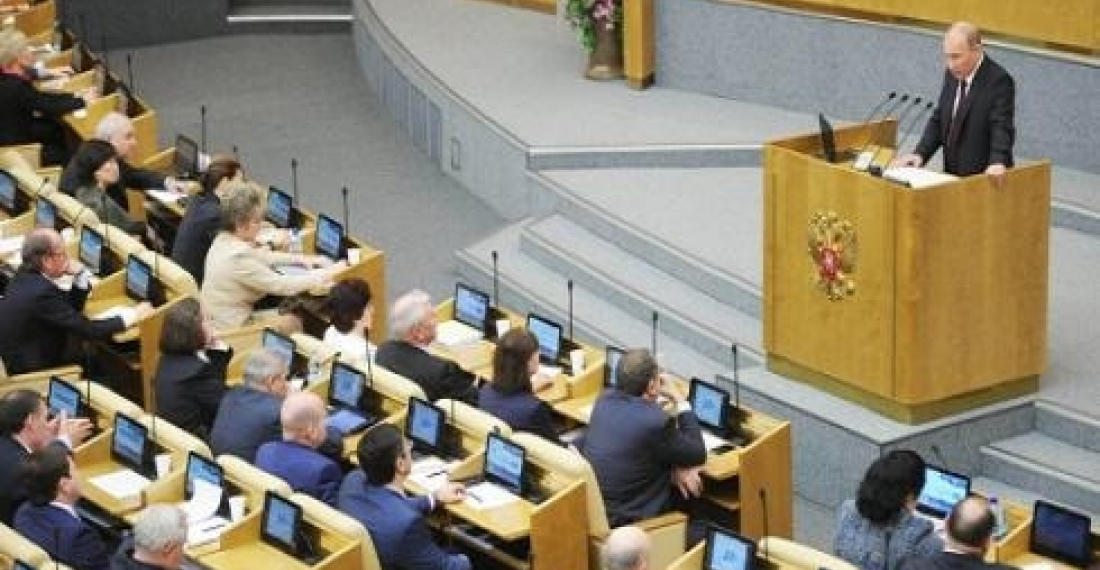In his last speech to parliament as prime minister of Russia before taking over the Presidentcy in May, Vladimir Putin outlined his vision for the country: "We have one Russia, and its modern, advanced development must be the goal that unites all the country's political forces that want to work to build it."
In his speech Putin hailed the creation of a common economic space between Russia, Belarus and Kazakhstan as the biggest geopolitical event for the region since the collapse of the Soviet Union.
"The creation of the Customs Union and a common economic space is, I believe, the most important geopolitical and integration event in the post-Soviet space since the break-up of the Soviet Union," “We have been working in the format of closer integration, as part of the common economic space,” Putin went on, adding that this included “freedom of movement for goods, capital and labor force.”
Since the creation of the Customs Union between Russia, Belarus and Kazakhstan and the removal of customs barriers in 2011, trade turnover between the countries has increased by 37 percent, with a 13-percent growth registered in the first two months of 2012, Putin said.
He also said further integration between the three former Soviet republics was “inevitable" and that the next step would be the creation of a Eurasian Economic Union by 2015.
“We hope that other partners who are interested in more advanced cooperation will join Russia, Belarus and Kazakhstan," he added.
The three countries’ presidents signed a declaration on Eurasian economic integration, a roadmap for integration processes aimed at creating a Eurasian Economic Union based on the existing Customs Union, in November 2011.
source: commonspace.eu with RIA-Novosti and BBC World
photo: Vladimir Putin addressing the Russian Parliament on 11 April 2011 (picture courtesy of the Press Service of the Government of Russia)







